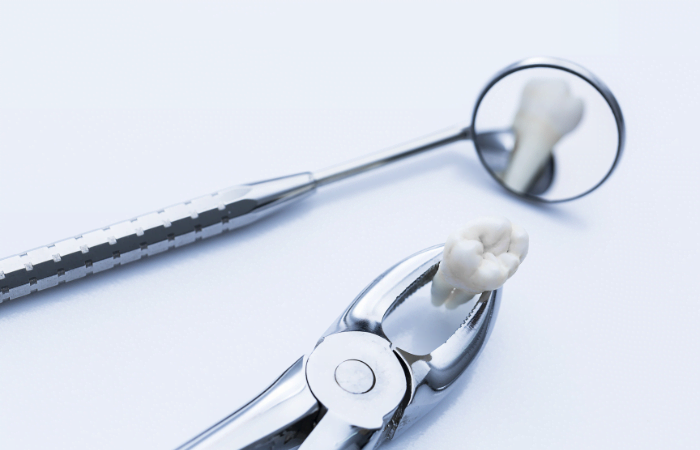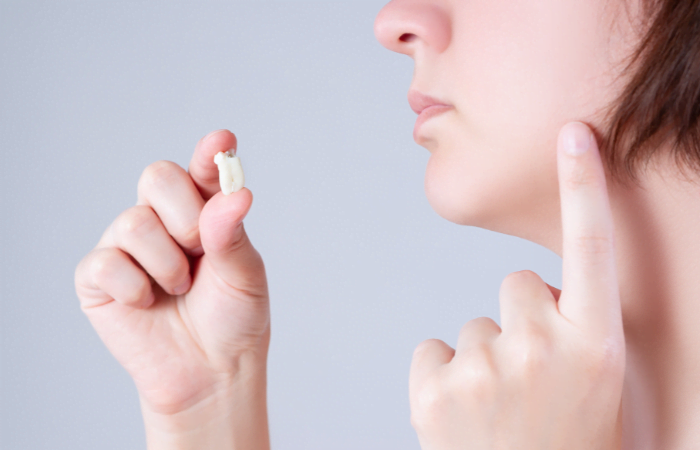
Wisdom teeth removal is a common dental procedure, often recommended when the third molars at the back of your mouth cause pain, infection, or alignment issues. While the surgery is relatively straightforward and safe, it’s normal to experience some pain and discomfort in the days following the procedure. However, with the right knowledge and care, you can effectively manage this pain and recover more comfortably.
Before we dive into pain management tips, it’s important to understand what to expect during the recovery process. Following wisdom teeth removal, you may experience the following symptoms:
A] Pain and Swelling: This is the most common side effect and is typically most noticeable in the first 48 hours. Pain may range from mild to moderate and is usually felt around the site of the extraction.
B] Bleeding: Some bleeding or oozing from the extraction site is normal in the first few hours. Your dentist will provide gauze to control this.
C] Bruising: Discoloration around your cheeks may occur due to bruising, but this typically fades within a few days.
D] Limited Jaw Movement: You may find it difficult to open your mouth wide due to swelling and discomfort in the jaw area.
These symptoms are expected and generally subside after the first few days. However, managing pain effectively during this period is key to a smooth recovery.
The first step to ensuring proper recovery after wisdom teeth removal is to follow the post-operative instructions given by your dentist. These instructions typically include recommendations on pain relief, oral hygiene, diet, and how to care for the extraction sites. At Diagnopein, our dental professionals provide clear and comprehensive aftercare instructions tailored to your specific case. Following these instructions will help minimize pain and promote faster healing.
2. Pain Relievers and MedicationsYour dentist will likely prescribe pain medication to help manage the discomfort after your wisdom teeth removal. Over-the-counter painkillers such as ibuprofen or acetaminophen may also be recommended, depending on the level of pain and your medical history.
A] Prescription Pain Relievers: For more severe pain, your dentist may prescribe stronger painkillers, such as opioids, for a limited period. It’s essential to take these medications exactly as prescribed to avoid side effects or dependency.
B] Over-the-Counter Pain Medications: If the pain is mild, over-the-counter options such as ibuprofen (Advil) or acetaminophen (Tylenol) are usually sufficient. These can help reduce pain and inflammation. Always follow the recommended dosage instructions.
C] Cold Compress: Applying a cold compress to the outside of your cheek can help reduce swelling and numb the pain. Use the compress for 15-20 minutes at a time, making sure to take breaks between applications to avoid tissue damage.
By combining the right medications and topical treatments like ice packs, you can effectively manage the pain and minimize discomfort after your procedure.
It’s important to rest as much as possible after your wisdom teeth removal. Rest allows your body to heal and reduces the risk of complications. In the first 24 to 48 hours, avoid strenuous activities and lying flat. Instead, prop yourself up with pillows when lying down to help reduce swelling.
Resting with your head elevated helps minimize blood flow to the extraction sites, which can reduce swelling and pain. If possible, rest in a semi-reclined position and avoid bending over, as this can increase pressure in the affected areas, making the pain worse.
Your diet plays a significant role in your recovery process. After wisdom teeth removal, it’s crucial to avoid chewing or eating hard, crunchy, or hot foods that could irritate the surgical sites. Instead, opt for soft, cool foods and liquids that are easy to consume and won’t disrupt the healing process.
A] Soft Foods: Focus on foods like mashed potatoes, soups, smoothies, yogurt, scrambled eggs, and well-cooked pasta. These foods will be easy on your mouth while providing essential nutrients for healing.
B] Avoid Hot and Spicy Foods: Hot foods and drinks can increase swelling and irritation around the extraction sites. Stick to cool or room temperature foods for the first few days after surgery.
C] Hydration: Drink plenty of fluids, but avoid using straws, as the suction can dislodge the blood clot at the extraction site, potentially leading to a condition called dry socket, which can be quite painful.
Remember to take small bites, chew slowly, and eat with caution to avoid irritating the surgical area. Maintaining proper nutrition and hydration will help support your body’s healing process.

While it’s crucial to keep the extraction sites clean, you need to be gentle with your oral hygiene routine immediately after wisdom teeth removal. Brushing your teeth carefully around the extraction area is important, but you should avoid brushing directly over the surgical sites during the first few days. Instead, use a soft-bristled toothbrush to clean the other areas of your mouth.
A] Rinsing Your Mouth: After meals, your dentist may recommend saltwater rinses to help keep the area clean and reduce the risk of infection. Mix a teaspoon of salt in warm water and gently swish it around your mouth without spitting forcefully.
B] Avoid Using Mouthwash with Alcohol: Alcohol-based mouthwashes can irritate the extraction site and slow the healing process. Stick to saltwater rinses until you’re fully healed.
Maintaining a clean mouth is essential, but be careful not to disturb the blood clot that forms in the socket, as this is a vital part of the healing process.
While most people recover from wisdom teeth removal without issues, it’s important to keep an eye out for any potential complications. If you experience any of the following symptoms, contact your dentist at Diagnopein immediately:
A] Excessive bleeding that doesn’t stop after applying pressure
B] Intense or worsening pain that doesn’t subside with pain medication
C] Fever or signs of infection, such as pus or swelling
D] Difficulty breathing or swallowing
If any of these issues arise, don’t hesitate to reach out for medical attention. Timely intervention can help prevent further complications and speed up your recovery.
After your wisdom teeth removal, you’ll have a follow-up appointment with your dentist to ensure that the extraction sites are healing properly. This is a good time to ask any questions you may have about pain management or recovery. During the follow-up visit, your dentist will check for signs of infection, dry socket, or other issues that may require attention.
At Diagnopein, we make sure to provide comprehensive aftercare and closely monitor your progress, ensuring a smooth recovery.
At Diagnopein, we are committed to ensuring your comfort throughout the process, offering expert advice and care. If you’re in Pune, Mumbai, Nagpur, or Delhi, contact us for your consultation, and let us help you get back to your normal routine with minimal pain and discomfort. The consultation fee is Rs. 1500/-, and we’re here to support you every step of the way.